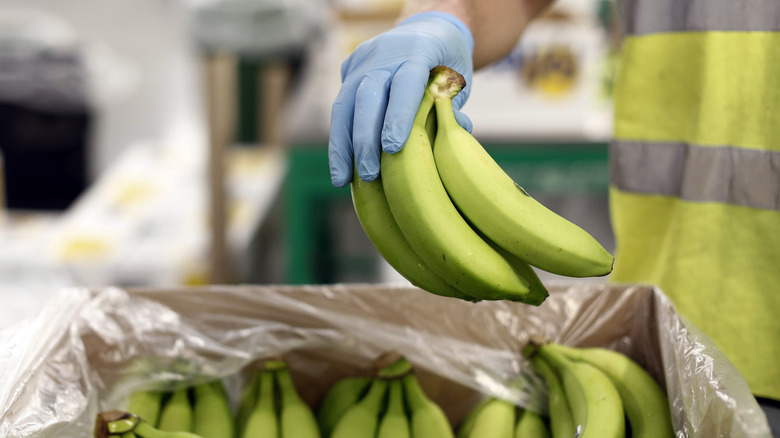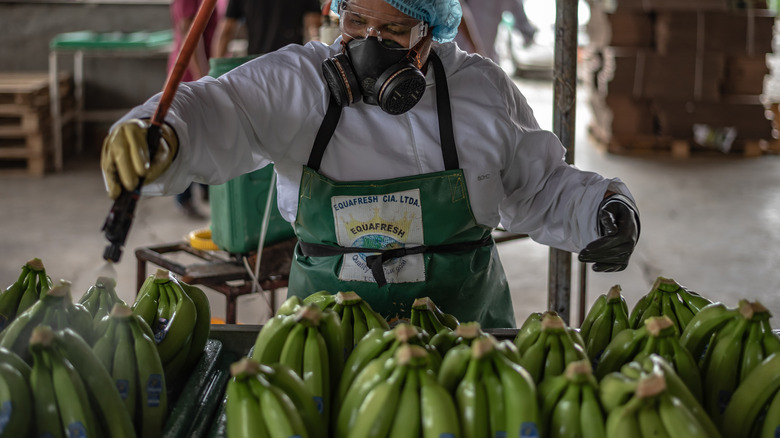Are 'Chemically Ripened' Bananas A Real Thing?
If you're planning to whip up a batch of banana nut muffins or a delicious loaf of banana bread, you'll definitely need overripe bananas to do so. There might be times you'll have to wait a few days for the ones on your counter to be banana bread ready, but more often than not, you'll find the perfect bunch in the produce section of your grocery store. Whether you're eating bananas as is, or adding them into your baked goods, it doesn't take a rocket scientist to determine which ones are the best to buy. A green peel indicates the banana is underripe, a yellow peel indicates it's softer and sweeter, and a peel with brown spots indicates it's time to make banana bread.
According to social media claims shared by Reuters, however, there is a fourth type of banana to look out for — ones that are covered in brown spots but have a green stalk. These social media claims suggest that this is an indication that the banana has been chemically ripened, as a brown spotted banana should apparently have a black stalk rather than a green one, but this is entirely false.
There's no visual indicator for chemically ripened bananas
The U.S. Department of Agriculture explained that spots on a banana can appear under a variety of circumstances that don't necessarily relate to how much it's been ripened, either naturally or chemically. In most cases, they are present on ripe bananas, other times they appear when exposed to high temperatures, or even simply due to bruising. As for the stems, bananas sometimes have black stems due to "crown rot," a form of fungus that develops due to the storage conditions of the supermarkets distributing them, and has nothing to do with natural or chemical ripeness (via Reuters). All bananas have green stems during the first four stages of ripening, and chemically ripening them won't change that.
So, "chemically ripened" bananas are a common and safe thing? Yes, as Snopes further elaborated, ethylene is a naturally occurring plant hormone, and "chemically ripening" bananas only means exposing them to extra ethylene gas in a climate-controlled chamber before they're put on sale. Even bananas sold as "organic" can be ethylene treated in the United States. If you're buying bananas from anywhere other than a farmer's market, they're pretty much guaranteed to be "chemically ripened," green stems and black stems alike. Contrary to what some posts on social media may claim, you can't tell how a banana has been ripened just by looking at it and treating bananas with ethylene is actually the norm.

